brick and Concrete CLEANING

What is growing on your concrete?
Concrete is porous and easily absorbs moisture, dirt, and pollutants, leading to unsightly growths and stains. Algae, mold, mildew, and moss are common culprits that thrive in damp, shaded areas, creating greenish-black streaks and slippery surfaces. Dirt, vehicle fluids, and other contaminants also build up over time, contributing to a grimy appearance. These elements not only make your concrete look dirty but can also cause long-term damage, leading to costly repairs if not addressed.
Regular concrete cleaning and power washing are essential to remove these growths and contaminants, preserving your concrete’s strength and visual appeal. For added protection, consider concrete sealing to prevent future buildup and keep your surfaces looking their best. Whether it's a driveway, patio, or walkway, keeping your concrete clean enhances curb appeal and extends its lifespan.
WHY cLEANING YOUR BRICK
MATTERS AND HOW WE DO IT SAFELY
Over time, brick surfaces can accumulate dirt, algae, mold, and other contaminants that not only degrade their appearance but also compromise their structural integrity. Without regular brick cleaning, these elements can lead to staining, discoloration, and even deterioration of both the brick and mortar. The porous nature of brick allows moisture to seep in, and when combined with organic growth, it can weaken the entire structure, leading to costly repairs or replacements.
At Wash Authority, we understand the importance of maintaining the integrity of your brickwork. That’s why we don’t use soft washing or high-pressure washing techniques that could potentially damage your brick or mortar joints. Instead, we utilize a low-pressure hot water technique that effectively cleans the surface while preserving its structural integrity. This method is gentle yet powerful, removing dirt, mold, and algae without the risk of harm to your brick or mortar.
For long-term protection, consider brick sealing after cleaning. Sealing adds a protective layer that resists water, dirt, and other contaminants, extending the life of your brickwork and keeping it looking pristine for years to come.
Regularly maintaining and cleaning your brick not only enhances the curb appeal of your property but also ensures its longevity and structural soundness. Let Wash Authority help keep your brick in top condition with our expert brick cleaning and sealing services.
We specialize in removing environmental soiling, oils, and small debris from concrete surfaces using water heated to over 200 degrees. This hot water power washing method, combined with our specially formulated cleansers, ensures a deeper, more effective clean that lasts longer. For added protection, ask about our concrete sealing services, which offer superior resistance to water, dirt, algae, mold, and other threats, helping to extend the longevity of your concrete surfaces.
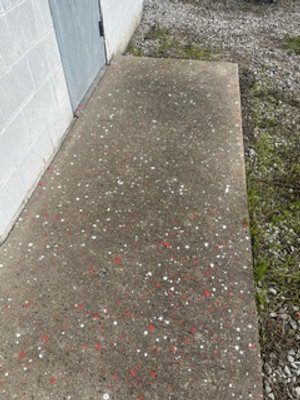
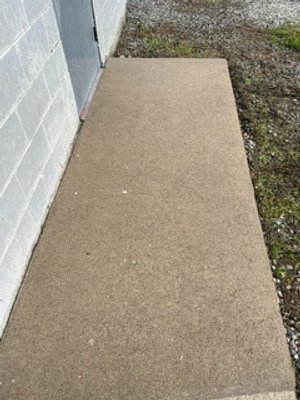
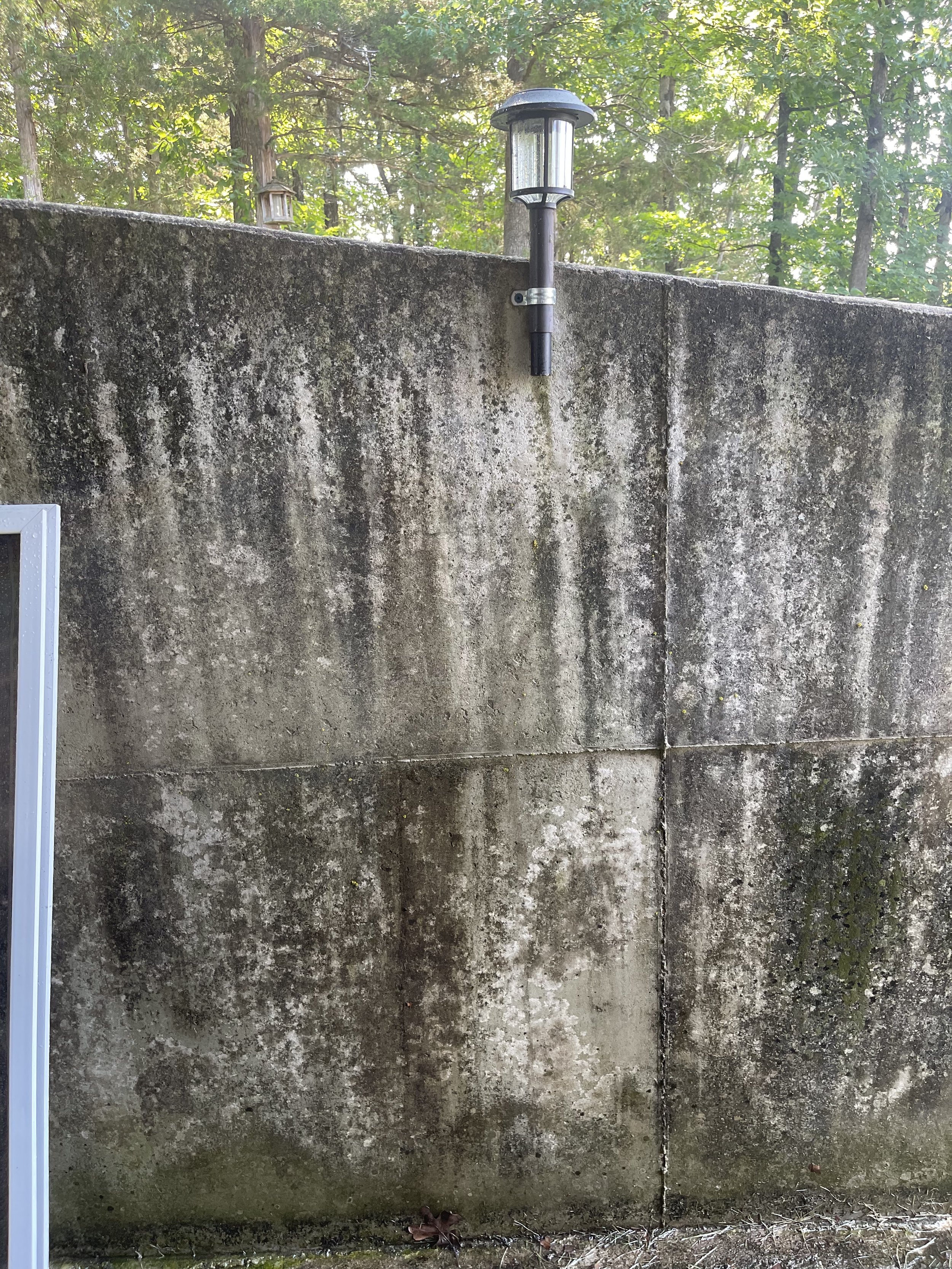
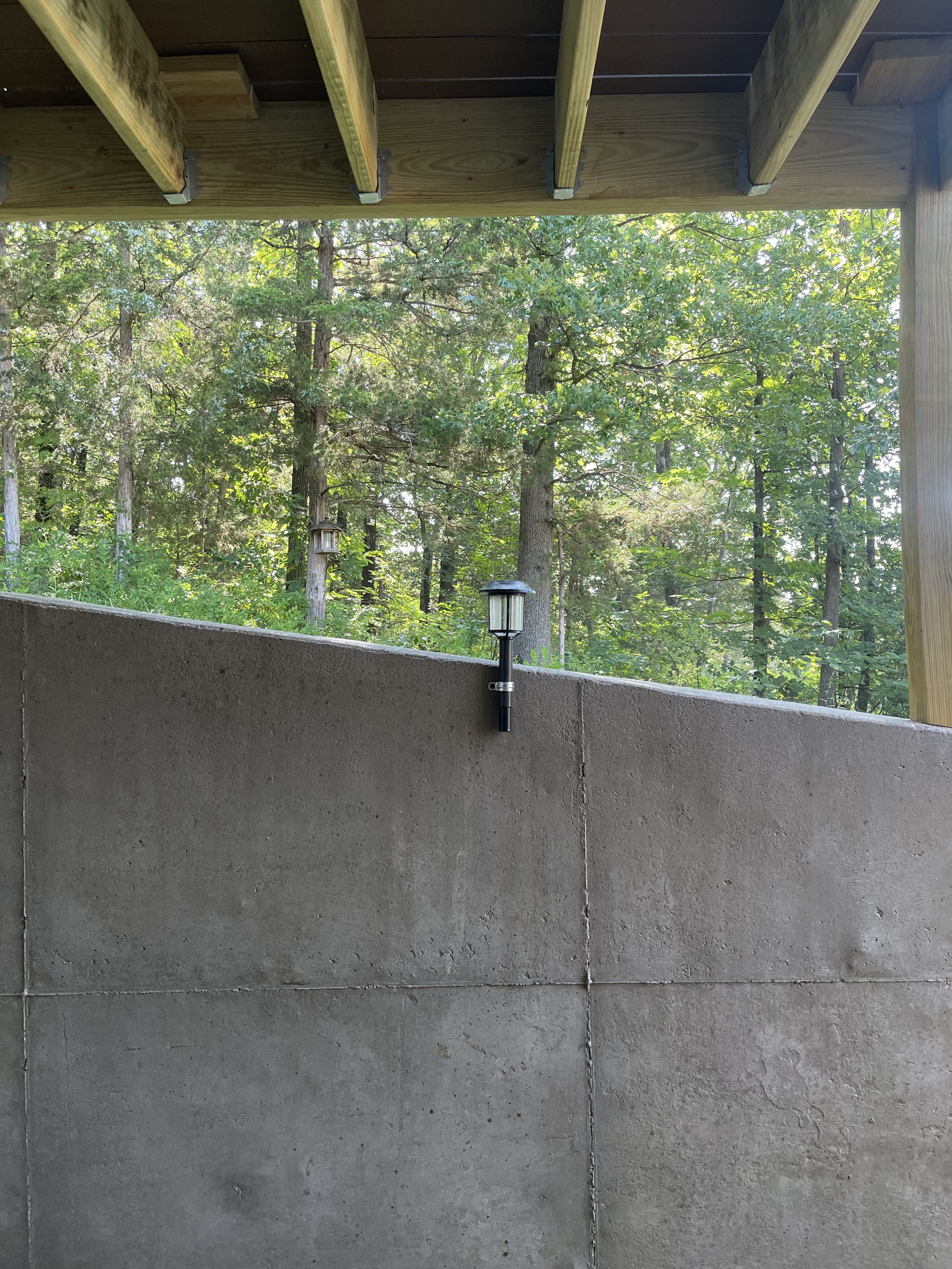

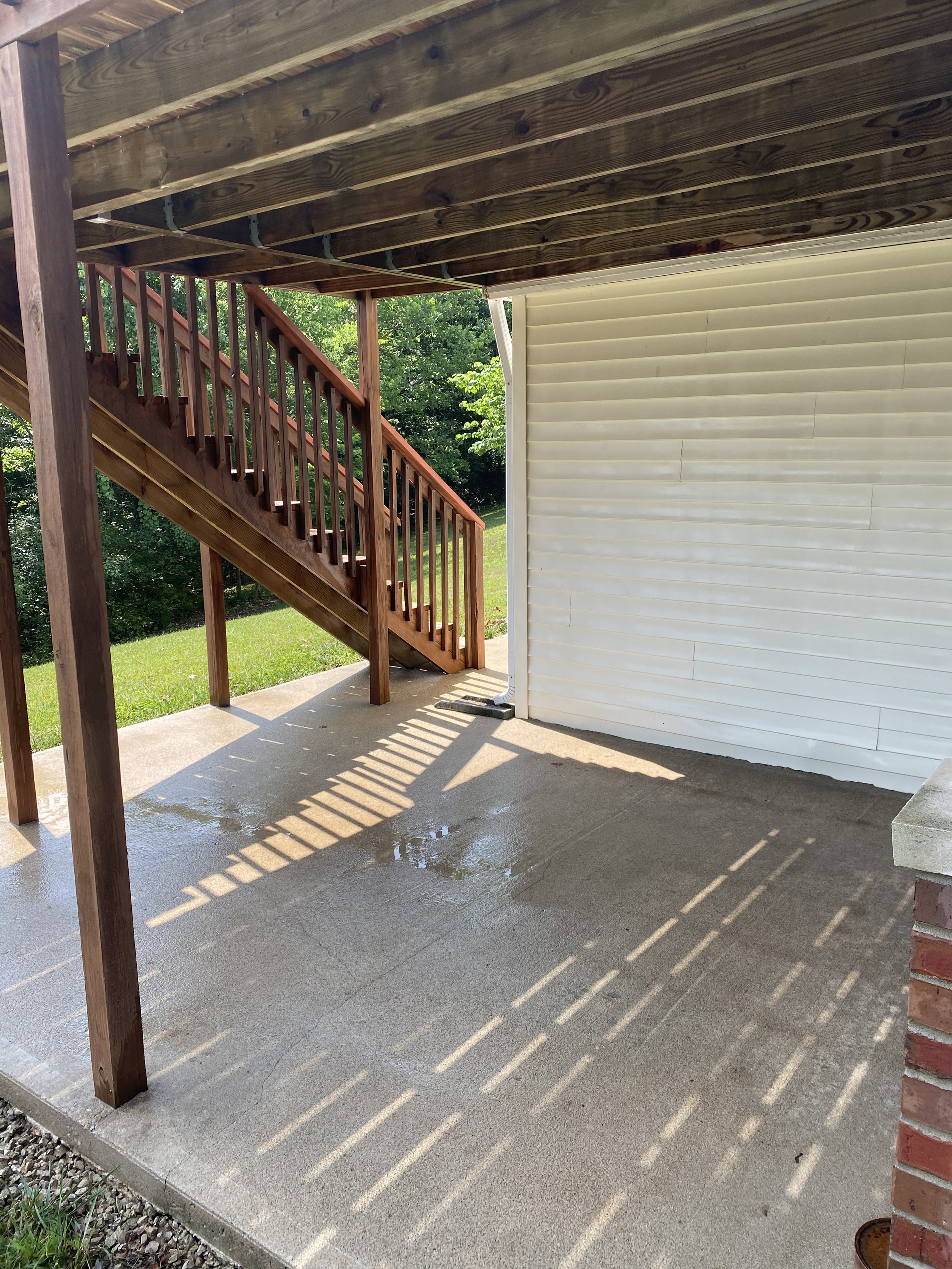
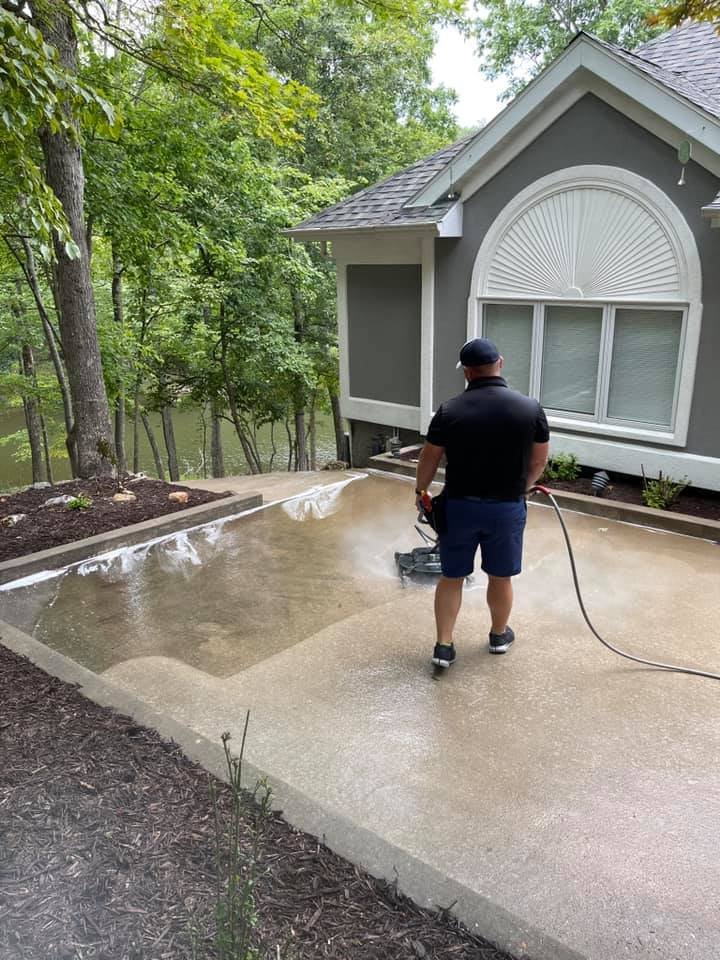

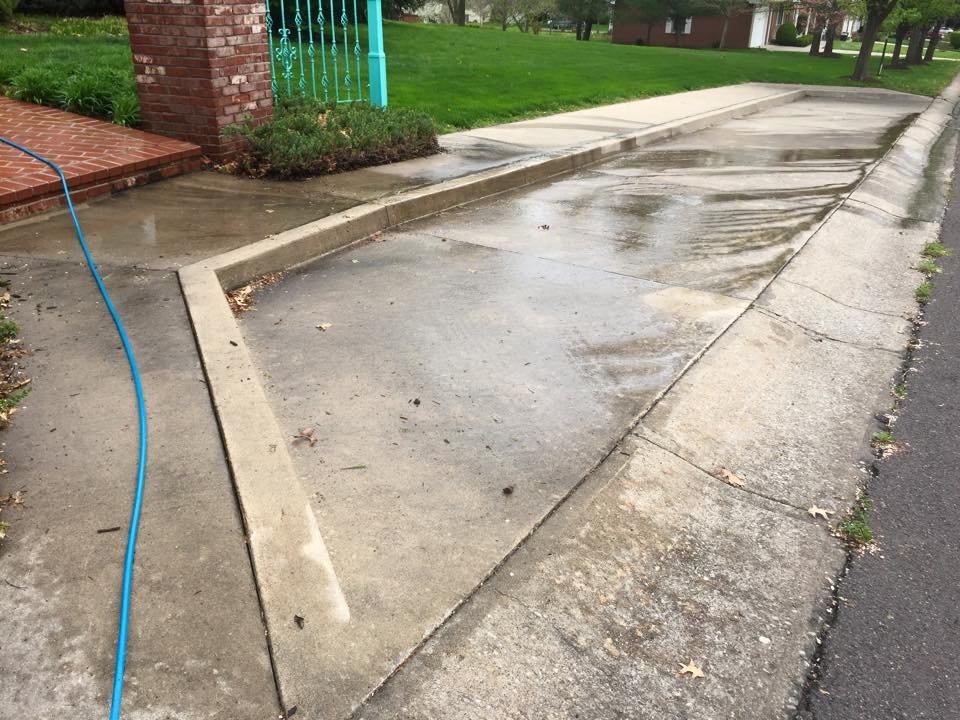
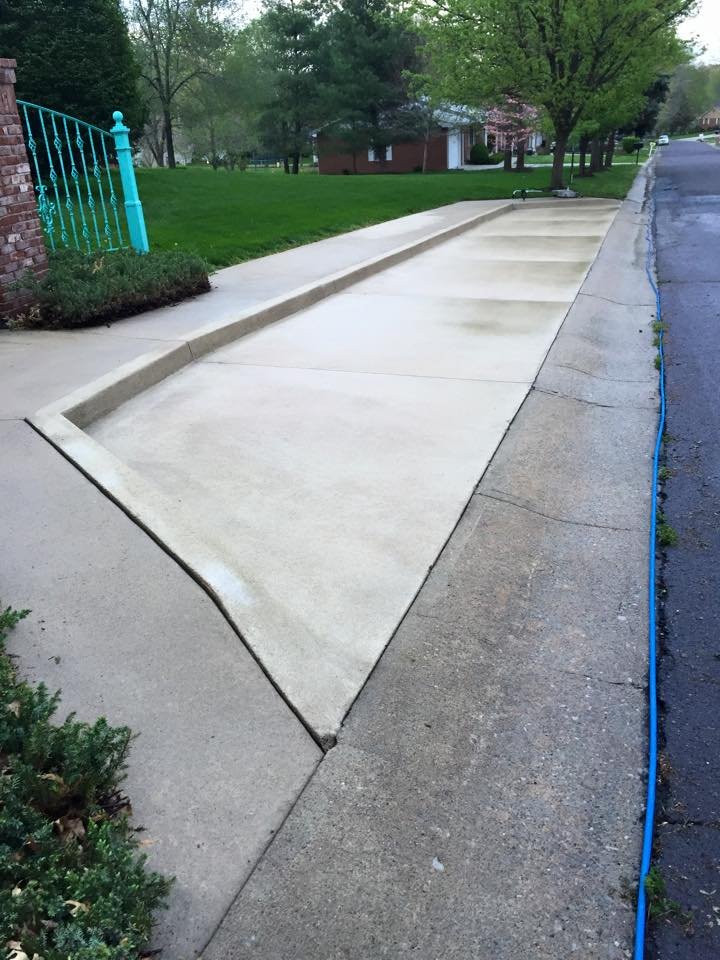
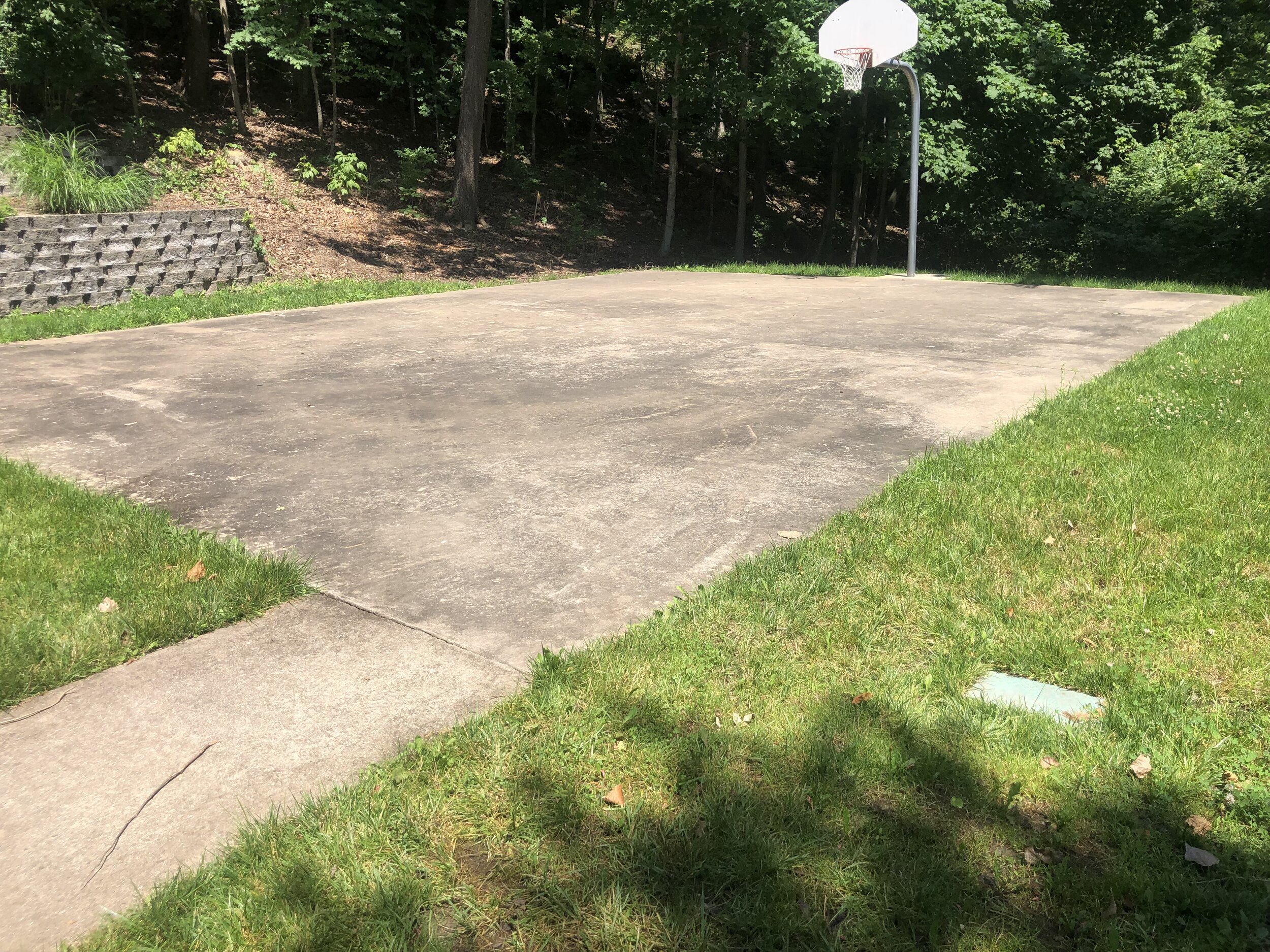
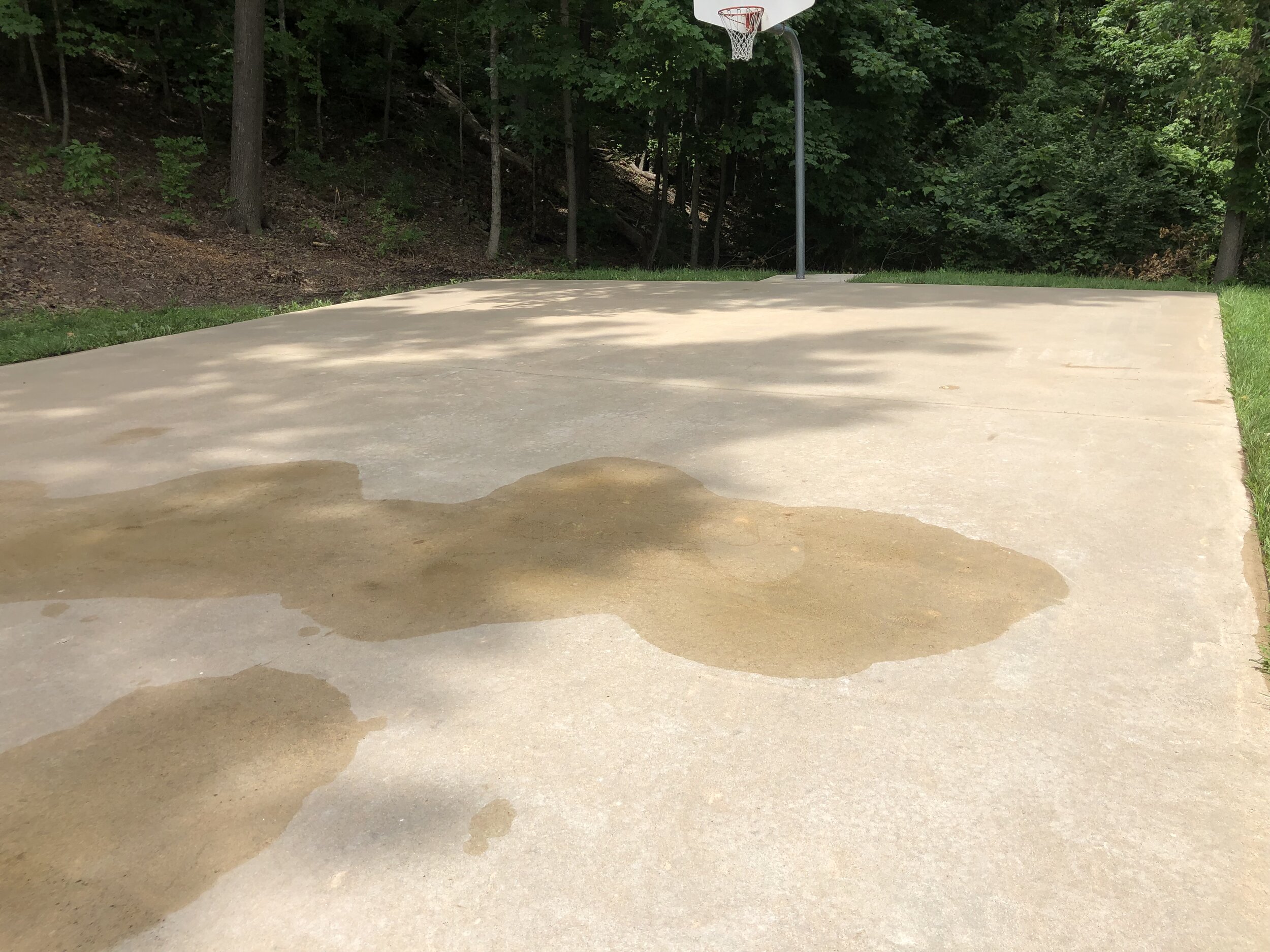
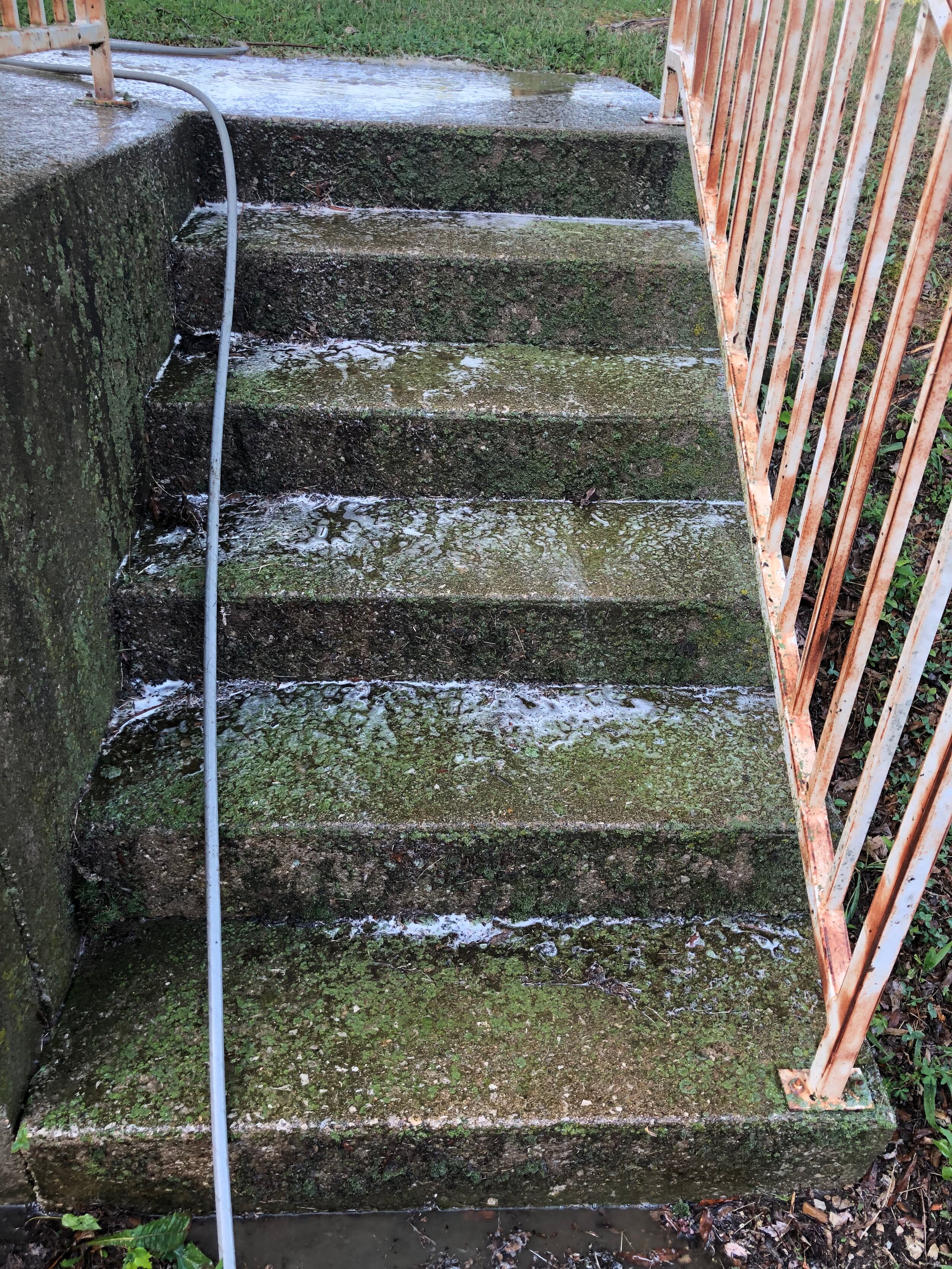


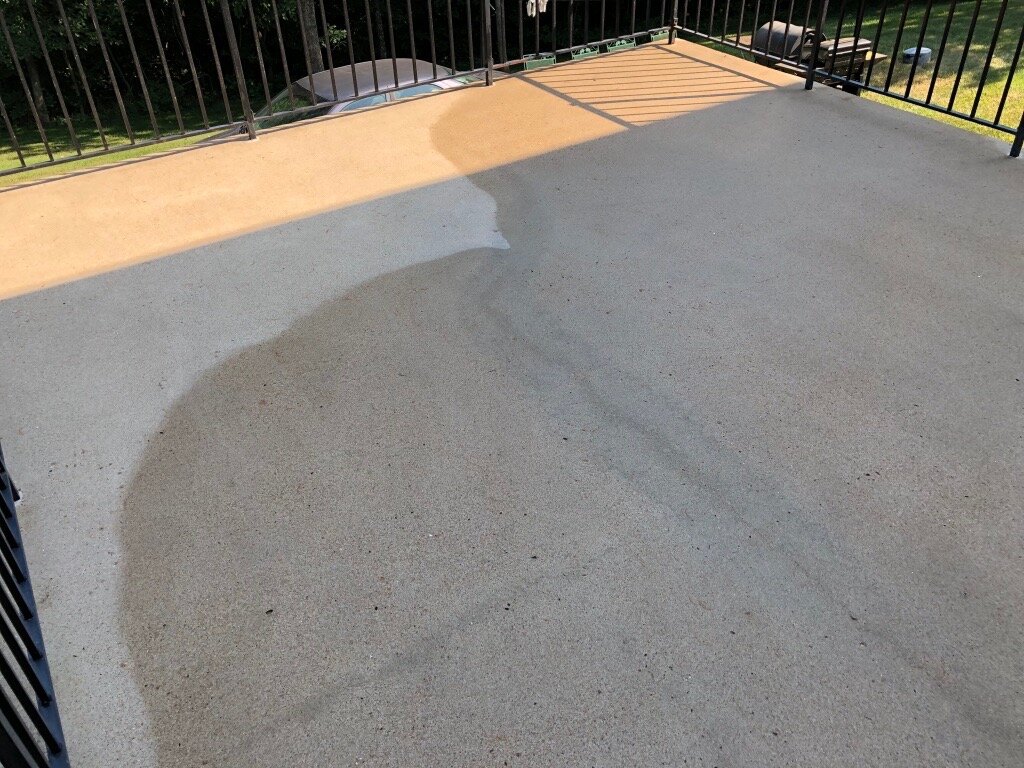

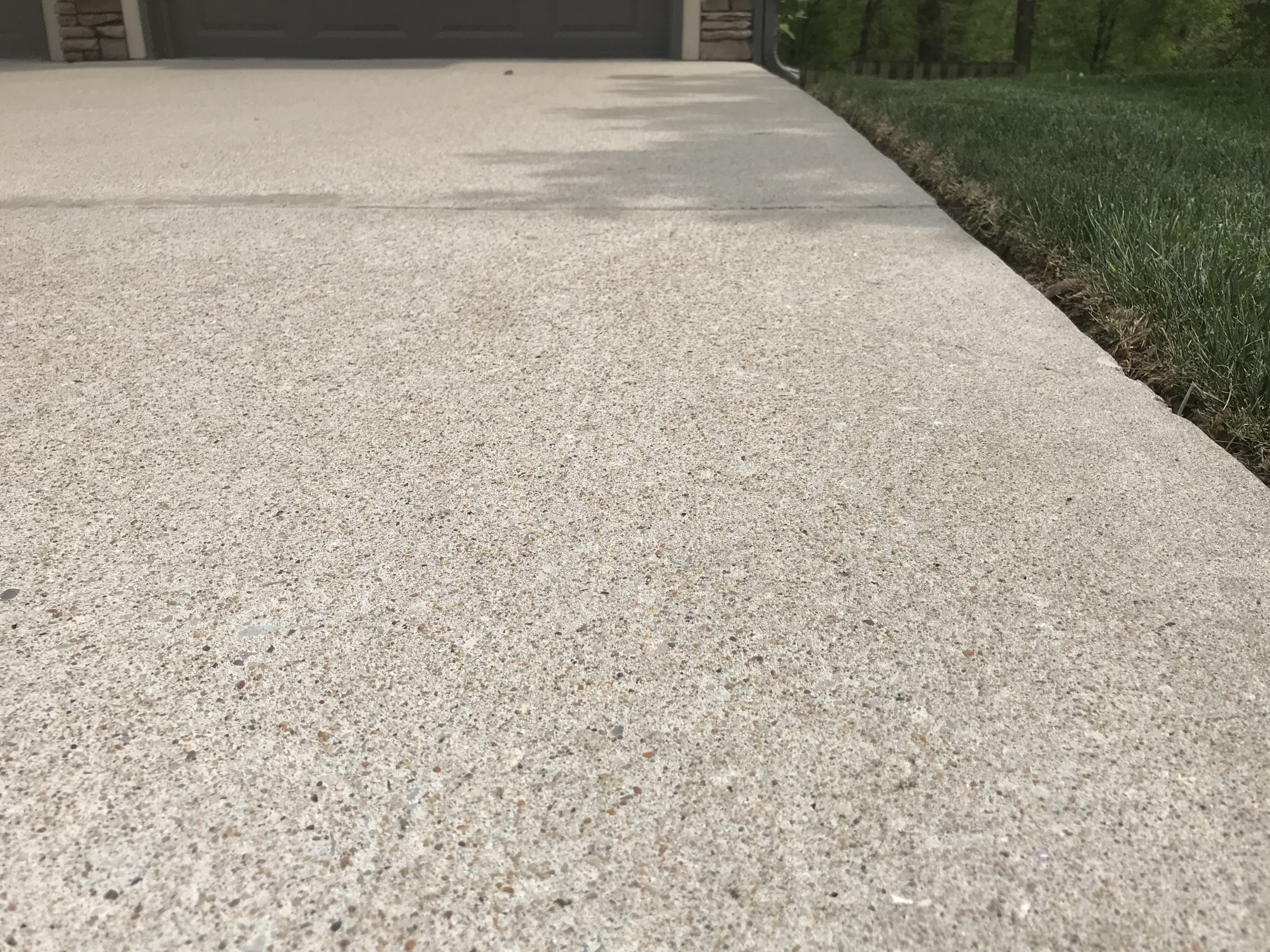
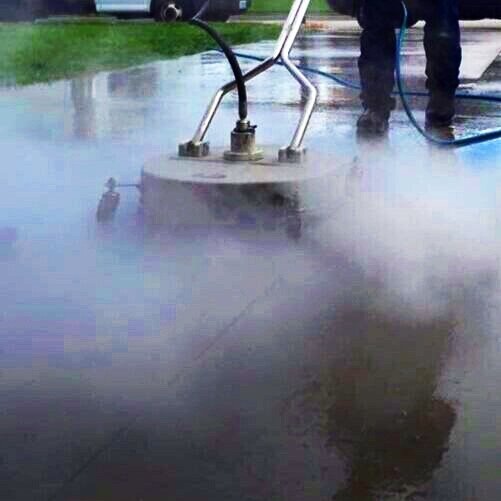
Top Questions about Brick and concrete Cleaning
-
Cleaning your concrete is essential for several reasons, including safety, longevity, and aesthetics. Dirty concrete, especially when wet, becomes a significant slip hazard due to the buildup of algae, mold, and mildew, which create a slick and dangerous surface. Regular cleaning removes these contaminants, reducing the risk of accidents and ensuring a safer environment for you and your family.
Cleaning your concrete also enhances curb appeal by removing unsightly stains from dirt, oil, and other pollutants, which can otherwise make your property look neglected. Clean concrete resists the wear and tear caused by environmental factors, extending its lifespan and preventing costly repairs.
Regular maintenance and cleaning can prevent the growth of harmful organisms that deteriorate the concrete over time, helping to preserve the structural integrity of driveways, patios, and walkways. For these reasons, keeping your concrete clean is crucial for maintaining a safe, attractive, and durable surface.
-
Sealing brick and concrete surfaces is essential for protecting them from freeze-thaw cycles, which can cause significant damage. When moisture penetrates porous materials like brick and concrete and then freezes, it expands, leading to cracks, spalling, and structural weakening. By applying a high-quality sealant, you create a barrier that prevents water from entering these surfaces, reducing the risk of freeze-thaw damage and extending the life of your brick and concrete.
-
Absolutely. Sealing your brick and concrete after cleaning helps to protect the surfaces from future stains, moisture infiltration, and environmental damage, ensuring they stay in excellent condition for longer.
-
The white, powdery substance on your retaining wall is called efflorescence. Efflorescence occurs when water-soluble salts within the concrete, brick, or mortar are brought to the surface by moisture. As the water evaporates, it leaves behind these salts, which appear as a white or grayish deposit on the surface.
Efflorescence is common in areas with high moisture levels and can be an indication that water is penetrating your wall. While it's not harmful to the structural integrity of your wall, it can be unsightly and may signal that there are moisture issues that need to be addressed. Regular cleaning can remove the efflorescence, but addressing the underlying moisture problem is key to preventing it from recurring.
Ask about our Efflorescence removal services to restore the appearance of your retaining wall and prevent future buildup.
-
Using hot water to clean brick and concrete is more effective for several reasons. Hot water breaks down and dissolves tough contaminants like oil, grease, and grime more efficiently than cold water. This makes it easier to remove dirt and stains from porous surfaces like brick and concrete. The higher temperature also enhances the performance of cleaning agents, allowing for a deeper clean with less effort.
Hot water cleaning is particularly useful for removing algae, mold, and mildew, as the heat helps kill these organisms, reducing the likelihood of regrowth. Additionally, using hot water can reduce the need for harsh chemicals, making the process safer for the surface and the environment. Overall, hot water provides a more thorough and efficient cleaning, preserving the appearance and integrity of your brick and concrete surfaces.
-
If you’ve spilled oil on your concrete, it’s important to act quickly to prevent stains from setting. Here are some initial steps you can take:
Blot the Spill: Use paper towels or a cloth to blot up as much oil as possible. Avoid wiping, as this can spread the oil further.
Apply an Absorbent: Sprinkle a generous amount of oil absorbent or cat litter over the spill. This will help absorb the oil. Let it sit for at least 15-30 minutes, then sweep it up and dispose of it properly.
Scrub the Area: Mix a solution of warm water and a degreaser from your local auto supply store or Dawn dish soap. Scrub the area with a stiff brush to help lift the remaining oil. Rinse thoroughly with water.
If the stain persists, Wash Authority can help. We use a combination of hot water and specialized cleansers to effectively remove oil stains from concrete surfaces. Our process penetrates deep into the pores of the concrete to break down and remove the oil, restoring your concrete to its original appearance.
Sealing your concrete or brick is essential for protecting these surfaces from the damaging effects of moisture, dirt, and environmental pollutants. Over time, unsealed concrete and brick can absorb water, leading to cracks, spalling, and the growth of mold and mildew. Sealing creates a protective barrier that prevents moisture penetration, reduces the risk of freeze-thaw damage, and helps to keep stains and discoloration at bay.
In addition to preserving the structural integrity of your surfaces, sealing enhances the appearance by maintaining the natural color and texture of your concrete or brick. This not only improves curb appeal but also extends the lifespan of your surfaces, saving you from costly repairs in the long run.
Investing in concrete or brick sealing is a smart way to protect your property and keep it looking its best for years to come.

